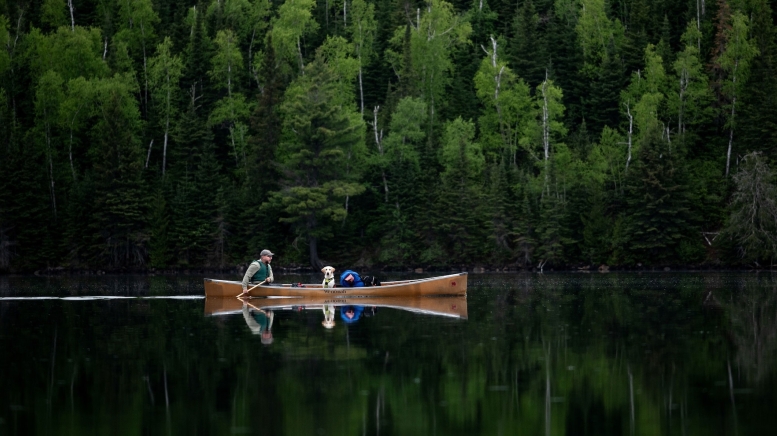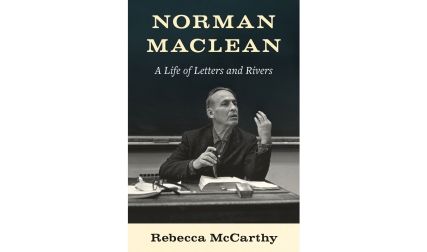Most of us don’t quit church (or temple, synagogue, or mosque) in a huff, storming out mid-sermon, vowing never to return. Instead, we slide away slowly, attending less and less often until one day we’re forced to admit, “I don’t go to church anymore.” These days, us non-churchgoers are the fastest growing segment of the American religious landscape—according to the Pew Survey, nearly 45 percent of Americans aged 40 and younger claim no religious affiliation, a dramatic increase from future generations which shows no signs of abating. Maybe not coincidentally, the trend-line of Americans’ participation in outdoors activities is headed in the opposite direction, growing significantly over the past 15 years.
My own personal trend-lines match. The line that measures church attendance is descending, and it intersects on the graph with an ascending line that measures my outdoors activity; as my religion has waned, my love of the wilderness has waxed; the more time I’ve spent in wild places, the less I’ve spent in church. Given the choice of taking a hike or paddling a canoe or hunting for pheasants versus sitting in a pew for a worship service, I’ll choose the hike/paddle/hunt option one hundred times out of one hundred. It’s like the sign my buddy has at his lake cabin: “I’d rather be sitting in a fishing boat thinking about God than sitting in church thinking about fishing.”
And I’m not alone. Many of us experience God in nature. Cliché? Maybe. But that doesn’t make it untrue. God really is there, in the wild, untamed places, among the flora and fauna that cohabit this planet with us.
What follows is what I’ve learned since I walked out of the church and into the woods. Some of the lessons overlap with what I was taught in my many years in organized religion. But somehow they’re more poignant, more beautiful when they’re learned in nature.
Many of us experience God in nature. Cliché? Maybe. But that doesn’t make it untrue.
Think of religion as a trellis.
Human beings have experiences of transcendence, as reported by shamans, sages, philosophers, preachers, and everyday persons from time immemorial. We touch the ineffable, the divine, the numinous, and then we search for language to describe what is essentially indescribable.
Some among us—the poets and painters and songwriters and novelists—find original ways to describe their contact with the transcendent. But most of us do not. Instead, we look for existing linguistic structures that approximate our encounter with the divine, that give us handholds and footholds as we attempt to climb what the sixth century monk St. John Climacus called the Ladder of Divine Ascent.
Few of us are strong enough to reach the heavens without assistance. Religion provides a structure up which the vines of our spiritual experiences can grow. The liturgies and hymns and prayers and verses were composed by others, but they approximate my experiences well enough to be a comfort, a framework, a scaffolding—a trellis—for my faith to climb.
Until they’re not.
I built a trellis in my garden—real, not metaphorical. I pounded fenceposts on either side of the raised garden bed and zip-tied a section of cyclone fence between them. Beans and squash climbed the trellis, as planned. But after a couple summers, the fenceposts bent inward under the weight of the crops, so I stabilized them by affixing braces to hold them upright. That lasted a couple more years. Eventually I had to build a new trellis.
I don’t know if my religion trellis rotted over time or if my quest for the divine outgrew it, but at some point the orderliness of religion no longer served me. In fact, instead of supporting my growth, it held me back, hemmed me in.
So I abandoned the trellis. Not all at once, but over time. I left the orderly pews and numbered hymns for the chaotic woods and muddy sloughs.
Annie Dillard, obviously in a fit, wrote,
On the whole, I do not find Christians, outside of the catacombs, sufficiently sensible of conditions. Does anyone have the foggiest idea what sort of power we so blithely invoke? Or, as I suspect, does no one believe a word of it? The churches are children playing on the floor with their chemistry sets, mixing up a batch of TNT to kill a Sunday morning. It is madness to wear ladies’ straw hats and velvet hats to church; we should all be wearing crash helmets. Ushers should issue life preservers and signal flares; they should lash us to our pews. For the sleeping god may wake someday and take offense, or the waking god may draw us out to where we can never return.
You know where people wear helmets and life preservers? Where they carry signal flares? Outdoors, in the wilderness.
And like Ms. Dillard says, if you venture out to meet the God of wild places, you may never return.
Excerpted from The God of Wild Places: Rediscovering the Divine in the Untamed Outdoors (Rowman & Littlefield, 2024) by Tony Jones. ©Tony Jones, used by permission of the author.
Tony Jones is an outdoorsman, theologian, professor, former pastor, and award-winning writer. He hosts the Reverend Hunter Podcast, teaches writing classes, mentors novice hunters, and guides canoe trips in the Boundary Waters. Tony is married, has three children (including Tanner Jones ’22) and two dogs, and lives in Edina, Minnesota.


